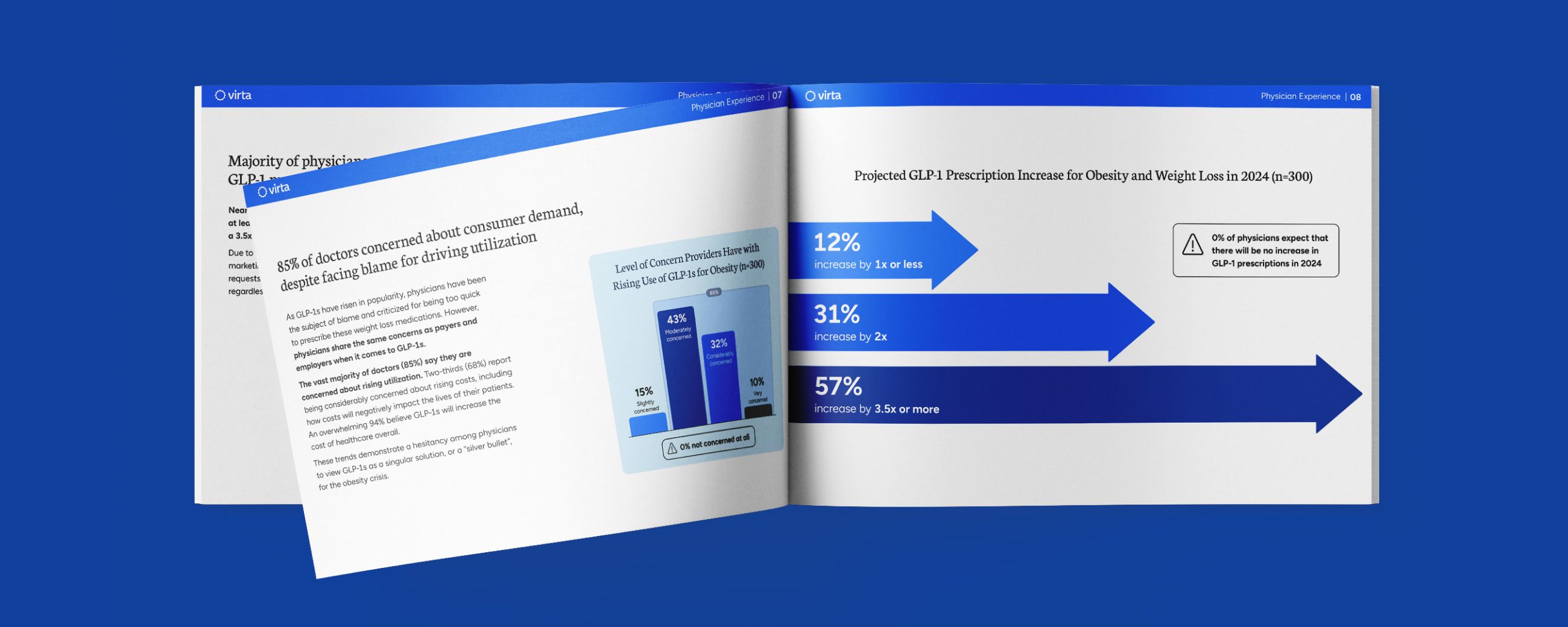
Polycystic Ovarian Syndrome (PCOS), Insulin Resistance, and Inflammation

As our knowledge of the role and impact of insulin resistance continues to grow, we learn of more and more diseases that are influenced by impaired insulin action. The degree of insulin’s impact on these conditions may vary, but factors which reduce insulin resistance often have a positive effect on symptoms and outcomes. While the actual cause of insulin resistance remains to be fully elucidated, there is increasing evidence that it is tightly linked to the complex set of defense and repair mechanisms called inflammation (1).
One of the many conditions with overlapping metabolic and endocrine etiologies is polycystic ovarian syndrome (PCOS), and insulin resistance is a prominent factor in most patient cases. PCOS is the most common endocrine disorder in women of reproductive age, yet many women suffer from PCOS and its various presentations long before they are officially diagnosed. As a result, they experience chronic, painful symptoms and fertility problems that can be very difficult both physically and emotionally. A PCOS diagnosis is often centered around fertility and the reproductive system, but the metabolic component to this syndrome is an important consideration for both short and long-term health, as well as fertility.
While the female hormonal system is certainly nuanced and complex, we will examine the role of insulin and inflammation as it pertains to PCOS and how a well-formulated ketogenic diet (WFKD) and its known effects on insulin resistance and inflammation may help some women who suffer from this syndrome.
What is Polycystic Ovarian Syndrome (PCOS)?
PCOS is designated by a cluster of symptoms that varies from woman to woman. Some of the common symptoms associated with this condition are abnormal, painful, heavy, and/or irregular menstrual cycles, increased body hair, dark skin patches, mood disturbances, and infertility. Diagnostic criteria for PCOS are not uniform and there are multiple PCOS phenotypes, but women with this syndrome typically have at least two of the three primary characteristics of:
- androgen excess (can present as increased body hair)
- chronic oligo-/anovulation (can present as absent or irregular menstrual cycles)
- the presence of polycystic ovaries at the time of diagnosis (2)
Underlying these primary characteristics, however, are two common components of many metabolic diseases: insulin resistance and inflammation.
Though not part of the official diagnostic criteria, insulin resistance and inflammation are involved in both the symptomology of PCOS and the relationship of PCOS to other metabolic conditions like type 2 diabetes (T2D), obesity, dyslipidemia, non-alcoholic fatty-liver disease (NAFLD) (3) and thus are valuable therapeutic targets for women suffering with this syndrome. In fact, compared to women without PCOS, those with the syndrome have a 2-4 times greater risk of developing prediabetes, T2D, gestational diabetes, and obesity, and these metabolic disturbances can possibly contribute to increased long-term risk of cardiovascular complications and endometrial cancer (2).
The metabolic and hormonal signals present in PCOS often exacerbate a vicious cycle that aggravates the symptoms. Chronically elevated insulin sends signals to the ovaries to increase androgen production, excess androgens often lead to increased abdominal fat gain, and increased abdominal fat then worsens both inflammation and insulin resistance, thereby continuing the cycle (4). Therefore, PCOS and its metabolic complications should be viewed in a broader health context beyond female fertility concerns.
PCOS and Insulin Resistance
Insulin resistance and impaired glucose tolerance are present in a large percentage (ranging from 44-70%) of women with PCOS (2). Insulin resistance is a key contributor to metabolic disturbance and is a driver in the pathogenesis of PCOS. The hyperinsulinemia, hyperglycemia, and increased oxidative stress common with insulin dysregulation are therefore all contributing factors to the condition. How insulin dysregulation occurs in this syndrome is not entirely known, but is likely related to impaired insulin signaling and/or receptor function leading to increased insulin secretion and decreased hepatic clearance. One of the consequences of this chronic elevation in insulin is greater signaling to the ovaries and increased androgen production (5).
In PCOS, post-prandial, or after-meal dysglycemia, are more prevalent than the fasting dysglycemia often seen in diabetes (6). As a result, the presence of impaired glucose tolerance (IGT) may serve as a better predictor for the development of prediabetes or T2D in these patients. An oral glucose tolerance test (OGTT) is believed to be a more relevant test in terms of identifying risk for developing prediabetes or T2D in women with PCOS than HbA1c (7).
Due to the influence of insulin resistance in PCOS, common treatments involve insulin-sensitizing drugs, such as metformin. Dietary changes and exercise are also sometimes recommended as a means to improve insulin sensitivity, but if they are recommended, they are often done so as broad and non-descript prescriptions.
Insulin signaling is known to affect fertility and weight gain and has a strong interwoven relationship with inflammation. Inflammation impairs insulin action and glucose tolerance; and it may be one of the links between hyperandrogenism, insulin resistance and abdominal obesity with PCOS (4).
PCOS and Inflammation
Inflammation is arguably involved to some degree in the underlying causes of many chronic diseases, and PCOS is no exception. Inflammatory markers like CRP, IL-6, white blood cell count (WBC) and TNF-a are increased in patients with PCOS and can enhance the risk of health complications with age (3, 4). These inflammatory markers like WBC, CRP and TNF-a have also been linked to increased risk of developing T2D and cardiovascular disease (4).
There are multiple sources of this increased inflammation with PCOS. Visceral adipose tissue, the fat that accumulates deep in the abdomen and around the organs, is also strongly linked to both insulin resistance and inflammation and produces various pro-inflammatory cytokines and adipokines. These adipo-cytokines play a role in the development of cardiovascular risk factors like dyslipidemia and endothelial dysfunction (4). Additionally, inflammation associated with excess central fat accumulation may be a significant factor in ovarian dysfunction (8) and inflammation may further contribute to hyperandrogenism (9)
A common way to address excess inflammation is through the use of anti-inflammatory drugs. Many of these drugs target specific bioactive compounds in the inflammation network (e.g. TNF-a, IL1-b), but they can cause side effects, including immune suppression. Low carbohydrate and well-formulated ketogenic diets, however, have been shown to reduce multiple inflammatory biomarkers, including CRP and WBC count (10, 11), but without the impaired immune response or other factors that are common with anti-inflammatory drugs (12).
PCOS and its Links to Dyslipidemia, Obesity, and Type 2 Diabetes
With the array of metabolic symptoms seen in PCOS, it may not come as a surprise that the prevalence of prediabetes and T2D in patients with PCOS is greater than age and weight matched women without PCOS (13) There has been somewhat of a chicken or the egg debate as to what comes first in PCOS, the inflammation or the insulin resistance, but regardless, both seem to contribute significantly to the short and long-term health consequences of this syndrome.
Because of the metabolic underpinnings of PCOS, many patients also show signs of dyslipidemia, independent of the existence of diabetes or hypertension. Studies have reported higher triglycerides and non-HDL cholesterol levels as well as lower HDL in women with PCOS compared to age and weight-matched controls (13).
Obesity can exacerbate the potential for complications. However, regardless of BMI, some degree of insulin resistance is found in most women with PCOS. Because insulin resistance is fundamental to the development of prediabetes and T2D, there in an increase in potential risk of these conditions with PCOS. Awareness of the risk can help facilitate screening and prevention of the complications associated with these diseases.
The Potential Effects of a Well-Formulated Ketogenic Diet on PCOS
A well-formulated ketogenic diet (WFKD) has been shown to reverse insulin resistance, reduce inflammation, as well as facilitate weight loss (10, 11). Therefore, women may be able to use a WFKD to ameliorate some of the powerful signals that are contributing to PCOS without the side effects of pharmaceutical treatment.
Women with PCOS tend to exhibit oxidative stress in response to glucose ingestion. To make matters worse, the hyperandrogenism that is characteristic of the syndrome appears to increase the inflammatory response to glucose.
The reduction in carbohydrates with a WFKD improves insulin sensitivity and the subsequent reduction in chronically elevated insulin can put a damper on inflammation and the signaling to the ovaries that increases androgen production (14). Ketones (beta-hydroxybutyrate, (BOHB) specifically) are not only used for fuel but have also been shown to have anti-oxidant effects (15). Youm et al (16) reported that BOHB also down regulates the activity of a major inflammation-controlling gene. This provides a multi-tier approach to squashing inflammation. Painful periods and inflammation go hand-in-hand, so reducing chronic low-grade inflammation can help with quality of life, not to mention fertility.
Hormone status is also important with respect to fertility concerns. There are two small studies that suggest a WFKD can improve the hormonal profile of women with PCOS and increase their chance of conception. In a 24-week intervention utilizing a ketogenic diet wherein 11 women with PCOS were instructed to restrict carbohydrates to less than 20 grams per day, the 5 who were able to complete the study showed significant weight loss and improvements in percentage of free testosterone, LH/FSH ratio (luteinizing hormone/follicle-stimulating hormone) and fasting insulin (17). And of these 5 completers, 2 successfully conceived without the use of fertility drugs. Similarly, in a study of 8 PCOS patients prescribed a calorie-restricted ketogenic diet for 6 months, 4 were able to follow the diet and 2 of them conceived without medically-induced ovulation (18).
It needs to be emphasized that these two pilot studies were very small and non-randomized. That said, it is promising that 4 out of 9 patients in these 2 studies who were able to maintain a ketogenic diet for 6 months conceived by natural means (a 40-50% success rate). This appears to be comparable to the 30-40% success rates for conception following 5 monthly cycles of pharmaceutical-induced ovulation (19).
Finally, environmental and behavioral factors must also be considered in treatment of PCOS. Decreased satiety and increased cravings for sweets have been noted in women with PCOS and is likely a contributing factor to weight gain (5). The difficulties of “dieting” have been well documented, but a calorically appropriate, well-formulated ketogenic diet has been shown to improve satiety for those in nutritional ketosis (20, 21).
Balancing the Safety and Risks of a Well Formulated Ketogenic Diet for Women with PCOS Trying to Conceive
We have previously outlined the characteristics of a well-formulated ketogenic diet, and though these characteristics are at odds with what we have all been told by numerous government guidelines, a continually growing body of research supports the use of carbohydrate restriction and increased dietary fat to improve insulin sensitivity and reduce inflammation.
PCOS is commonly associated with increased inflammation and insulin resistance, and a WFKD has been shown to have very potent effects reducing both of these. And unlike most drugs, a WFKD has few if any lasting side-effects, which are more than balanced out by improvements in weight, blood pressure, blood glucose control, and dyslipidemia (11, 22).
But for women trying to conceive, what are the risks of conceiving while following a ketogenic diet? Despite the two small published studies indicating that natural conception can occur in 40-50% of women with PCOS following a ketogenic diet (17, 18), there are no large studies demonstrating the safety of carrying a pregnancy to term while following a WFKD. Thus, the standard of care within the healthcare community is to recommend stopping a ketogenic diet if woman becomes pregnant.
Women with PCOS are at increased risk for gestational diabetes, pre-eclampsia, and premature birth (all increased 1.5- to 2.5-fold) (23). Unfortunately, given the lack of objective data from which to balance the risk of continuing a carbohydrate-restricted diet during pregnancy versus the risks of experiencing these PCOS-associated complications on a more traditional diet, we cannot be guided by current published science.
Conclusion
The effects of PCOS are both physical and emotional. Though the presentation of the condition can differ among women, most patients have some degree of insulin dysregulation and inflammation that contribute to the syndrome, even though many patients may be unaware of the underlying metabolic concerns. Addressing these factors with a well-formulated ketogenic diet can have a potent effect on insulin and inflammation without the side effects that can be associated with pharmaceutical interventions.
The information we provide at virtahealth.com and blog.virtahealth.com is not medical advice, nor is it intended to replace a consultation with a medical professional. Please inform your physician of any changes you make to your diet or lifestyle and discuss these changes with them. If you have questions or concerns about any medical conditions you may have, please contact your physician.
This blog is intended for informational purposes only and is not meant to be a substitute for professional medical advice, diagnosis, or treatment. Always seek the advice of your physician or other qualified health provider with any questions you may have regarding a medical condition or any advice relating to your health. View full disclaimer
Are you living with type 2 diabetes, prediabetes, or unwanted weight?

(1) Saltiel, AR., Olefsky, JM. Inflammatory mechanisms linking obesity and metabolic disease. Clin Invest. 2017;127(1):1-4.
(2) Macut, D., Bjekic-Macut, J., Rahelic, D. et al. Insulin and the polycystic ovary syndrome. Diabetes Research and Clinical Practice. 2017; 130:163-170
(3) Anagnostis, P., Tarlatzis, BC., Kauffman, RP. Polycystic ovarian syndrome (PCOS): Long-term metabolic consequences. Metabolism Clinical and Experimental. 2018; 86:33-43
(4) Repaci, A., Gambineri, A., Pasquali, R. The role of low-grade inflammation in the polycystic ovary syndrome. Molecular and Cellular Endocrinology. 2011; 335: 30–41
(5) Diamanti-Kandarakis, E., Dunaif, A. Insulin Resistance and the Polycystic Ovary Syndrome Revisited: An Update on Mechanisms and Implications. Endocrine Reviews. 2012; 33: 981–1030.
(6) Anwar, S., Shikalgar, N. Prevention of type 2 diabetes mellitus in polycystic ovary syndrome: A review. Diabetes & Metabolic Syndrome: Clinical Research & Reviews. 2017; 11S: S913–S917
(7) Lerchbaum, E., Schwetz, V., Giuliani, A., et al. Assessment of glucose metabolism in polycystic ovary syndrome: HbA1c or fasting glucose compared with the oral glucose tolerance test as a screening method. Human Reproduction. 2013; 28(9): 2537-2544
(8) Puder, JJ., Varga, S., Kraenzlin, M., et al. Central Fat Excess in Polycystic Ovary Syndrome: Relation to Low-Grade Inflammation and Insulin Resistance. J Clin Endocrinol Metab. 2005; 90(11):6014–6021
(9) Gonzalez, F. Inflammation in Polycystic Ovary Syndrome: Underpinning of insulin resistance and ovarian dysfunction. Steroids. 2012; 77(4):300-305
(10) Forsythe, CE., Phinney, SD., Fernandez, ML., et al. Lipids. 2008; 43:65–77
Comparison of Low Fat and Low Carbohydrate Diets on Circulating Fatty Acid Composition and Markers of Inflammation. Lipids. 2008; 43:65–77
(11) Hallberg, SJ., McKenzie, AL., Williams, PT., et al. Effectiveness and Safety of a Novel Care Model for the Management of Type 2 Diabetes at 1 Year: An Open-Label, Non-Randomized, Controlled Study. Diabetes Ther. 2018; 9:583–612
(12) Ridker P, et al. Lancet. 2012 Aug 11; 380(9841): 565–571
(13) Wild, R. Dyslipidemia in PCOS. Steroids. 2012; 77:295–299
(14) McGrice, M., and Porter, J. The Effect of Low Carbohydrate Diets on Fertility Hormones and Outcomes in Overweight and Obese Women: A Systematic Review. Nutrients. 2017; 9(204)
(15) Shimazu,T., Hirschey, MD., Newman, J., et al. Suppression of Oxidative Stress by β-Hydroxybutyrate, an Endogenous Histone Deacetylase Inhibitor. Science. 2013;339(6116): 211–214
(16) Youm, Y-H., Nguyen, KY., Grant, RW., et al. Ketone body β-hydroxybutyrate blocks the NLRP3 inflammasome-mediated inflammatory disease. Nat Med. 2015; 21(3): 263–269
(17) Mavropoulos, JC., Yancy, WS., Hepburn, J., et al. The effects of a low-carbohydrate, ketogenic diet on the polycystic ovary syndrome: A pilot study. Nutrition & Metabolism. 2005; 2:35
(18) Alwahab UA, Pantalone KM, Burguera B. A ketogenic diet may restore fertility in women with polycystic ovary syndrome: a case series. AACE Clinical Case Rep. 2018;4:e427-e431
(19) Legro, RS., Brzyski, RG., Diamond, MP., et al. Letrozole versus Clomiphene for Infertility in the Polycystic Ovary Syndrome. N Engl J Med 2014; 371:119-129
(20) Boden, G., Sargrad, K., Homko, C., et al. Effect of a Low-Carbohydrate Diet on Appetite, Blood Glucose Levels, and Insulin Resistance in Obese Patients with Type 2 Diabetes. Ann Intern Med. 2005;142:403-411.
(21) McKenzie, AL., Hallberg, SJ., Creighton, BC., et al. A Novel Intervention Including Individualized Nutritional Recommendations Reduces Hemoglobin A1c Level, Medication Use, and Weight in Type 2 Diabetes. JMIR Diabetes 2017;2(1):e5
(22) Bhanpuri , NH., Hallberg, SJ., Williams, PT., et al Cardiovascular disease risk factor responses to a type 2 diabetes care model including nutritional ketosis induced by sustained carbohydrate restriction at 1 year: an open label, non-randomized, controlled study. Cardiovasc Diabetol (2018) 17:56
(23) Roos, N., Kieler, H., Sahlin, L., et al. Risk of adverse pregnancy outcomes in women with polycystic ovary syndrome: population-based cohort study. BMJ. 2011; 343:1-9









